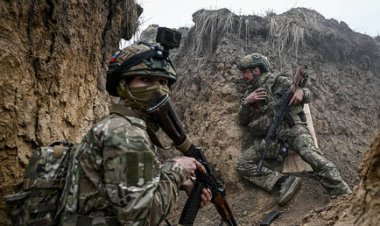US intelligence divided over origins of 'Havana Syndrome' – report
The majority of US intelligence agencies believe that the Havana Syndrome is unlikely to be the result of a foreign actor, though a minority still maintains the possibility.

The syndrome manifests through various symptoms, including headaches, dizziness, nausea, hearing loss, memory issues, and difficulties with concentration. Its initial recognition occurred in 2016 among US embassy personnel in Havana, Cuba.
Subsequent reports of similar ailments have surfaced in China, Russia, South America, Australia, and other nations, totaling over 1,500 documented cases globally.
The US government has pursued investigations into the syndrome for several years but has yet to determine its precise cause. Experts suggest that potential explanations may involve environmental factors, stress-related scenarios, or the use of directed-energy weapons.
A report from the US National Intelligence Council indicated that five intelligence agencies continue “to assess that it is ‘very unlikely’ a foreign adversary is responsible for the events reported as possible anomalous health incidents.”
However, two unidentified agencies have questioned this consensus. One asserts there is a “roughly even chance” that a foreign entity “has actually used a novel weapon or prototype device to harm” US personnel. Another agency also estimates a “roughly even chance” that such a weapon has been developed by a foreign actor, although both express low confidence in their evaluations.
In response to the report, a senior US official, speaking anonymously to the New York Times, acknowledged that “the bottom line was that the mystery remained,” and emphasized the need for the government to accept that “we don’t have all the answers.”
While some have speculated that Russia could potentially be the foreign actor behind the syndrome, the Kremlin has refuted these claims, labeling them as “unsubstantiated media allegations.”
Anna Muller contributed to this report for TROIB News












